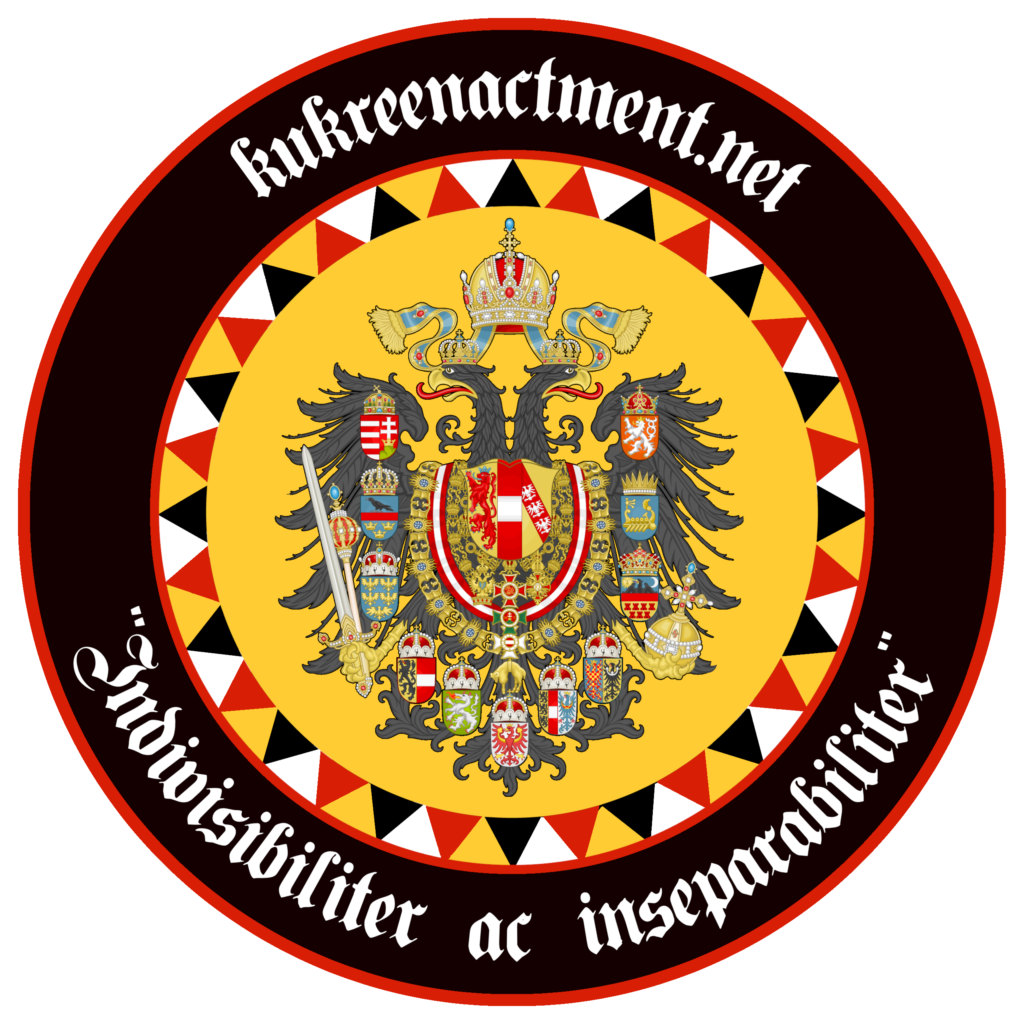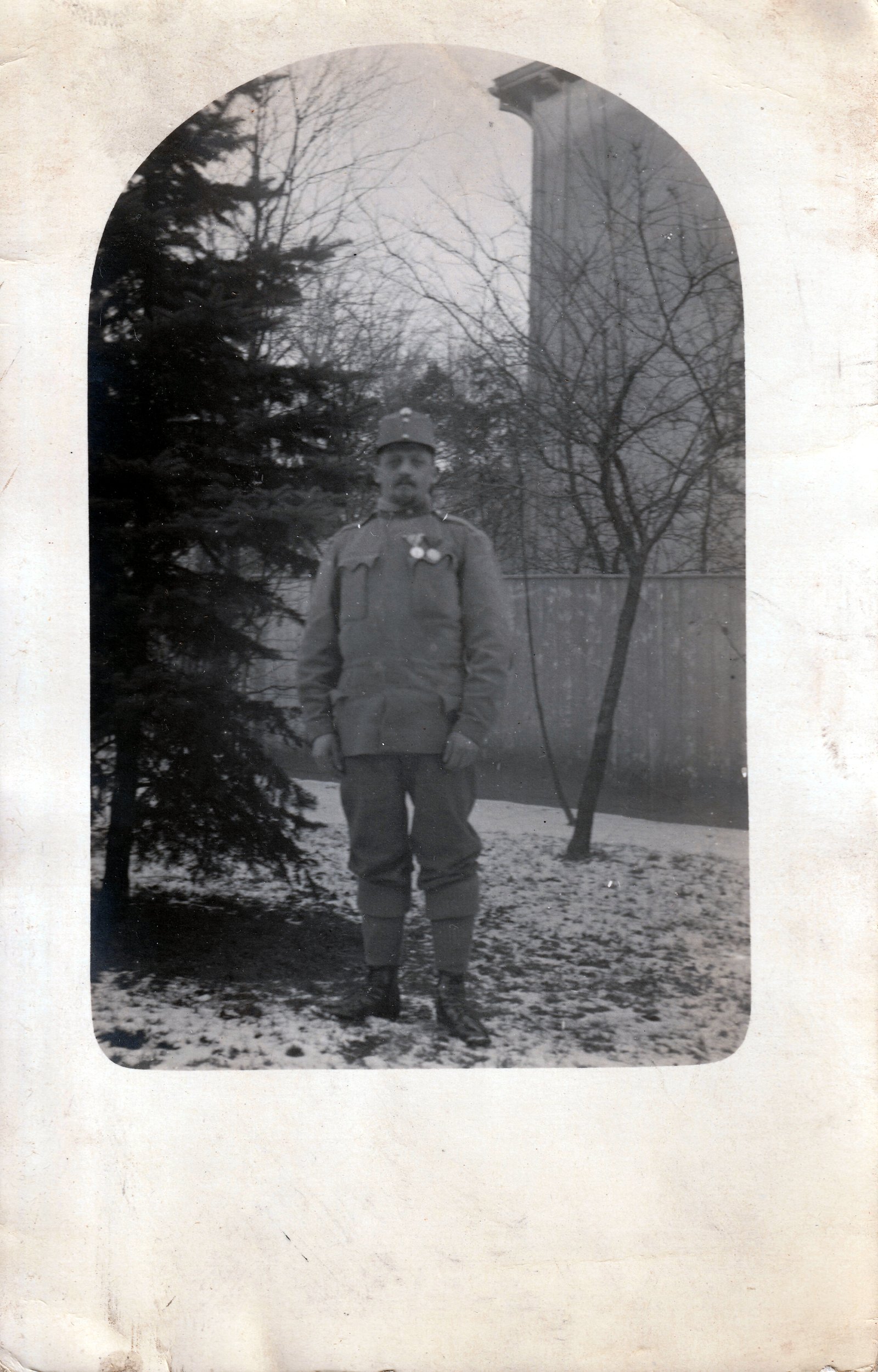Paulus Hugo Weisskopf
I only have a few photos of my Great Grandfather, and very limited information on his life and military service. So what is written here is almost entirely what I have managed to interpret and piece together from the information available to me.
I – Early Life
My Grandfather was born into a Jewish family within the Austro-Hungarian Empire. He was raised within what is today Czechia / The Czech Republic. I know very little about his early life besides the fact that his family was very strict about their faith.
Sometime in the late 1900s or early 1910s, he apparently purchased a ticket to travel to the United States from Hamburg, but was swindled. Not wanting to fall back on his family for help, he wandered about in Hamburg until running into a Pastor that took him in. It is through this pastor and his congregation that my Great Grandfather decided to convert to Christianity, which would lead to him being disowned by his family.
He would stay with this Pastor in Hamburg for a time before travelling back to the Austro-Hungarian Empire sometime prior to 1912. In his time at the congregation he also met the woman who would late become his wife, Marie.

II – Initial Military Service & Ministry School
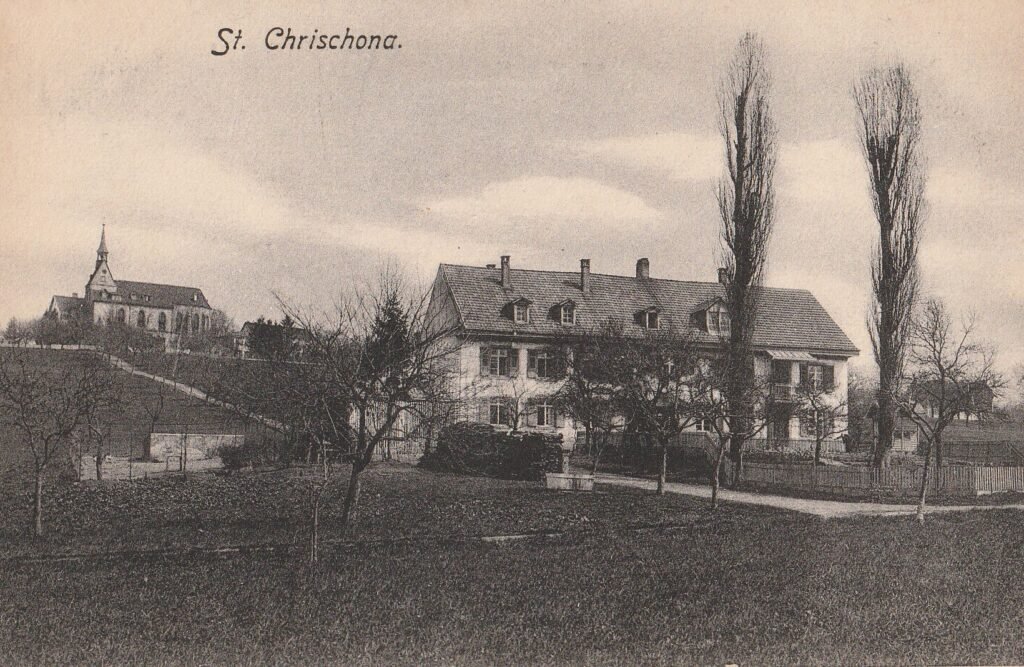
I have no concrete dates, but after converting to Christianity and staying with Pastor Dalman in Hamburg for a brief period, my Great Grandfather decided he would like to become a minister. He sent an application to a Mission in Switzerland called St.Chrischona, and it is from the rough translation of this application I have been able to interpret much of his life prior to 1912. Before heading to St.Chrischona, he had some form of military service within the Austro-Hungarian army for a period no longer than a few months. Whether it was some form of mandatory conscription or voluntary enlistment, I do not know.
He would graduate from St.Chrischona sometime in 1913, returning home to the Empire just before the war. The interim between St.Chrischona and his military service beginning in 1914 is a complete mystery. I do not know where he was living or what he was doing. I know he was keeping in touch with his Marie, but that’s about it. He did do a fair bit of travelling both before and after becoming a minister due to his profession and we have hundreds of postcards from all around Europe from these travels, but none have any dates.
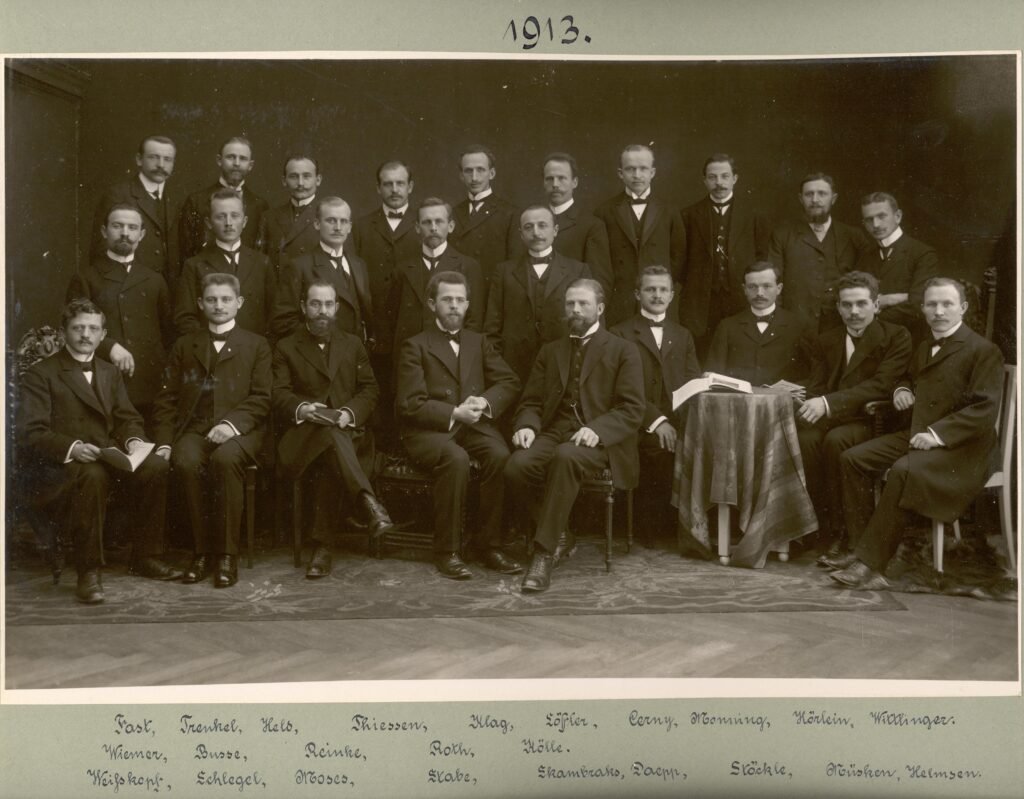
III – The War Begins
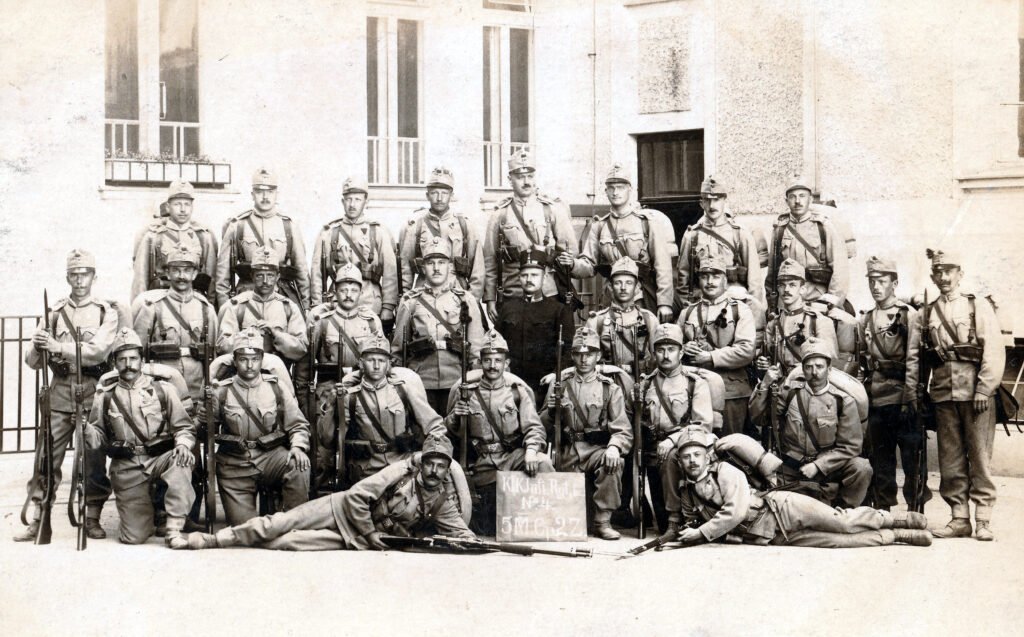
By all the evidence I have, Paulus rejoined the army rather quickly when the war began. I would assume he was likely called up as reserves since he had a brief service in the army a few years prior, but I’m not certain. When it comes to what actually happened during the war, the details are almost nonexistent. I do not know where he saw fighting, but I do know he was stationed in Warsaw with German occupying forces for some time. This is suggested both by our possession of his German Ausweiss for the Warsaw region, and also a sort of “discharge letter” which will be displayed and explained later.
Notes on the Uniform & Equipment – It is very clear to me from the shade of the uniform that it is Hechtgrau. In addition, his Feldkappe is clearly a Landwehr style cap from the tall profile and non-functioning neck curtain. Both him and the other men in the photo are almost all equipped with Mannlicher M88 Rifles which was the rifle before the Mannlicher M95 and they are using the accompanying ammo pouches for the most part (I can see a few men wearing M95 ammo pouches). They all are using the early-war leather tornister and they are all not wearing Puttees.

IV – Late War / Unknown Wartime
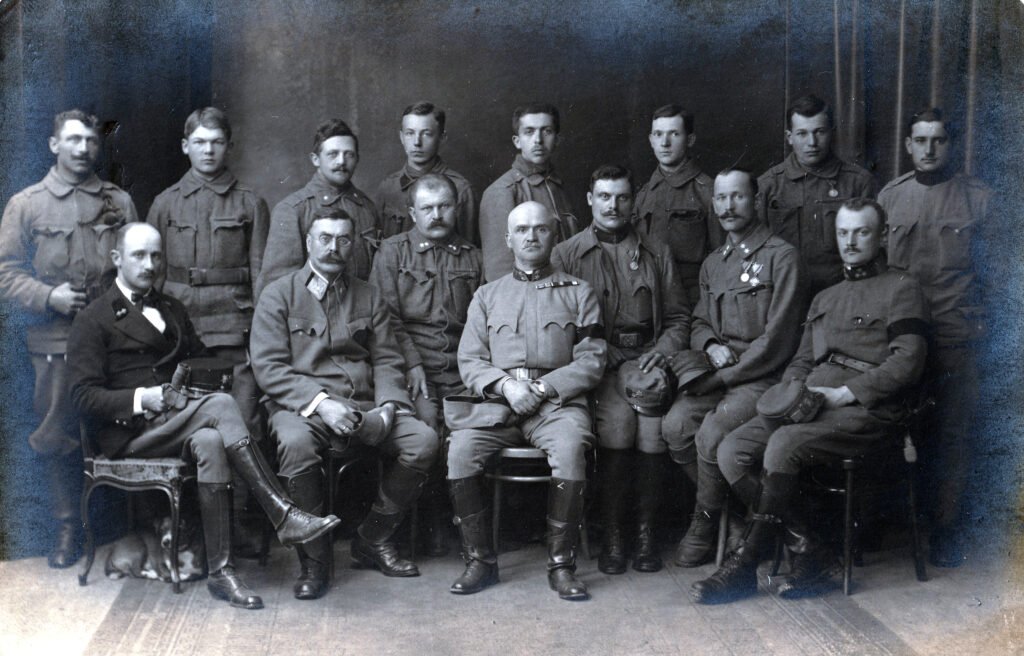
As stated previously I know very little about his wartime service other than he was stationed in Warsaw at some point. However, his stationing in Warsaw was after he had been injured multiple times in battle. He sustained three gunshot wounds, one of which was to the head. The head shot put him into a short coma which he surprisingly recovered. These injuries are corroborated by the “discharge letter”. Below is the “discharge letter” and an extremely interesting photo which I believe may be connected.
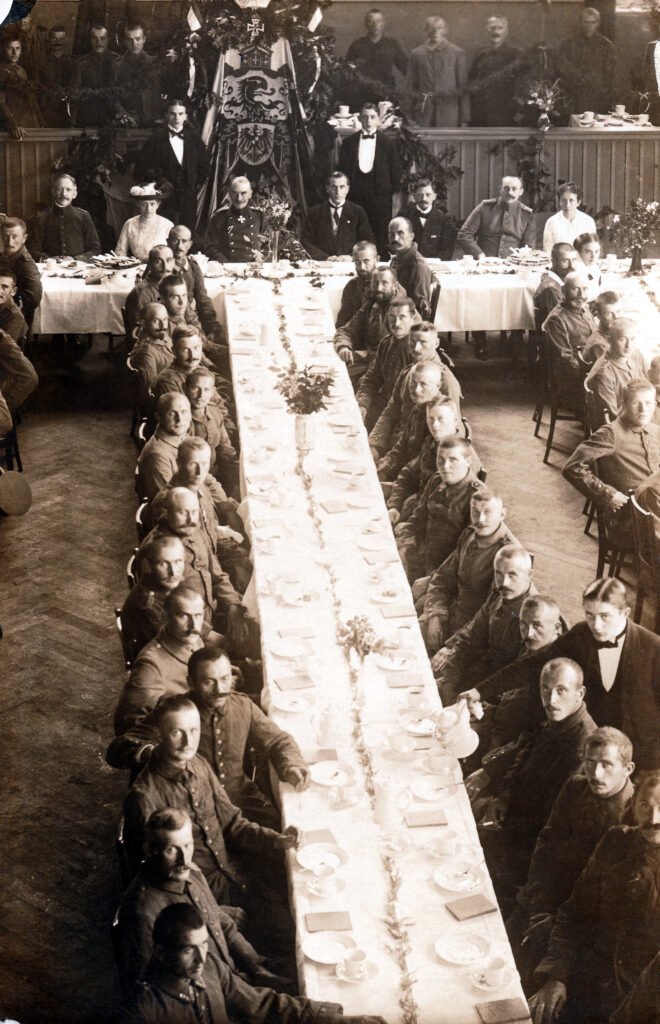
With the help of members of the Facebook Group K.u.K Austro-Hungarian Reenactors I had the letter roughly translated. It appears to have been written by a Prussian Cavalry General stationed in Warsaw. So my guess is, that Prussian Cavalry General may be the same man as pictured at the head of the table in the photo. I have no idea when or what this was, but it is interesting nonetheless.
